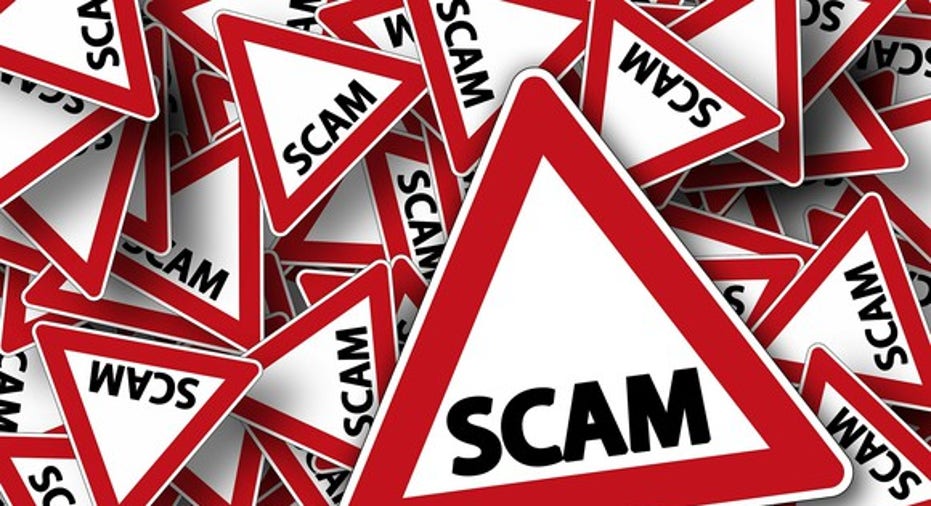Beware of These Mortgage Scams

A Long Island man was recently sentencedto 15 years in prison for his role in a multimillion-dollar mortgage scam. It's good news that he's off the streets and no longer preying on distressed homeowners, but many other scam artists remain, looking for people to con.
Mortgage scams are big business, and many people get taken advantage of by them. Take a little time to learn more about these cons so that you will be less likely to fall for one.Here's a look at some of the most common mortgage scams.
Image source: Pixabay.
Shady operations
The way it's supposed to work is that you get a home loan (or refinance one) through a reputable lender -- perhaps your local bank. The lender wants your business, of course, but also wants to make sure that you're a good bet, that you seem like you'll be able to handle the loan. They will follow rules and regulations, taking a close look at your financial health and, assuming you get pre-approved and then approved, offering you a loan.
Sometimes it doesn't work that way, though. Sometimes lenders are so eager to get you into a mortgage that they don't examine your financial health sufficiently. That kind of behavior is what led to the credit crisis a few years back, as aggressive lending with lax underwriting standards led to many failed loans.Standards have tightened now.
Sometimes you're offered a loan with terms or features that violate regulations or that are designed to take advantage of you in some way. For example, be wary of any mortgage that will charge you a prepayment penalty, as that's illegal with most mortgages. Lenders should allow you to reduce your interest rate by buying points, too. All mortgages have closing costs, which tend to be in the range of 2% to 5% of the loan's value. If you're being charged $20,000 in total closing costs on a $250,000 loan, you may be getting scammed. A little shopping around to compare mortgage ratescan save you a lot.
Other red flags include being told that your poor credit rating won't matter or that there will be a balloon payment due at the end of the loan. Poor credit scores do matter and will typically result in your being denied a loan or offered one with steep interest rates.
Image source: Pixabay.
Refinancing scams
A common scam that many people have fallen for is when they're contacted, often through the mail, with a great refinancing deal. You might also be drawn into it just by seeing a flyer stapled to a telephone pole. Or you might receive a seemingly legitimate email from your current bank or lender that's actually from a scammer using its name and logo. (Sometimes, typos can tip you off.)
The pitch is designed to appeal to you psychologically, often offering "relief" from your onerous monthly payments. You may be quoted an exceptionally low interest rate and shown significantly lower monthly payments. As you fall for it (who wouldn't want a guaranteed low interest rate and much lower monthly payments?), you'll be asked for information to get the ball rolling -- such as your name, Social Security number, birth date, and so on.
Do you see where this is going? Identity theft!
The information gathered can be used to rip you off, or it can be sold to someone else who will rip you off. You won't be getting a bargain refinancing. You may also be asked to pay fees upfront -- or even, brazenly, directed to start sending your mortgage payments to the scammer. (If payment is only accepted via wire transfer or cashier's check, that's another bad sign, as those are untraceable.) There are other directions these scams can go in, too.
The Federal Trade Commission has warned against them, offering examples of the kinds of appeals you'll see:
- "Stop foreclosure now!"
- "Get a loan modification!"
- "Over 90% of our customers get results."
- "We have special relationships with banks that can speed up the approval process."
- "100% Money Back Guarantee."
- "Keep Your Home. We know your home is scheduled to be sold. No Problem!"
Finally, be wary if you're being encouraged to get a "cash-out" refinancing, where you get a new loan and get some or much of your home equity back in cash. These refinancings generally carry higher interest rates and will therefore cost you more, and reducing your home equity may not be a goal of yours.
What to do
If you think or know that you've been had by a mortgage-related scam, contact the Federal Trade Commission, your state Attorney General's office, and/or the Better Business Bureau, and report your experience.
Being savvy about scams can save you a lot of headaches, not to mention thousands of dollars.
5 Simple Tips to Skyrocket Your Credit Score Over 800!Increasing your credit score above 800 will put you in rare company. So rare that only 1 in 9 Americans can claim they're members of this elite club. But contrary to popular belief, racking up a high credit score is a lot easier than you may have imagined following 5 simple, disciplined strategies. You'll find a full rundown of each inside our FREE credit score guide. It's time to put your financial future first and secure a lifetime of savings by increasing your credit score. Simply click hereto claim a copy 5 Simple Tips to Skyrocket Your Credit Score over 800.
The Motley Fool has a disclosure policy.



















